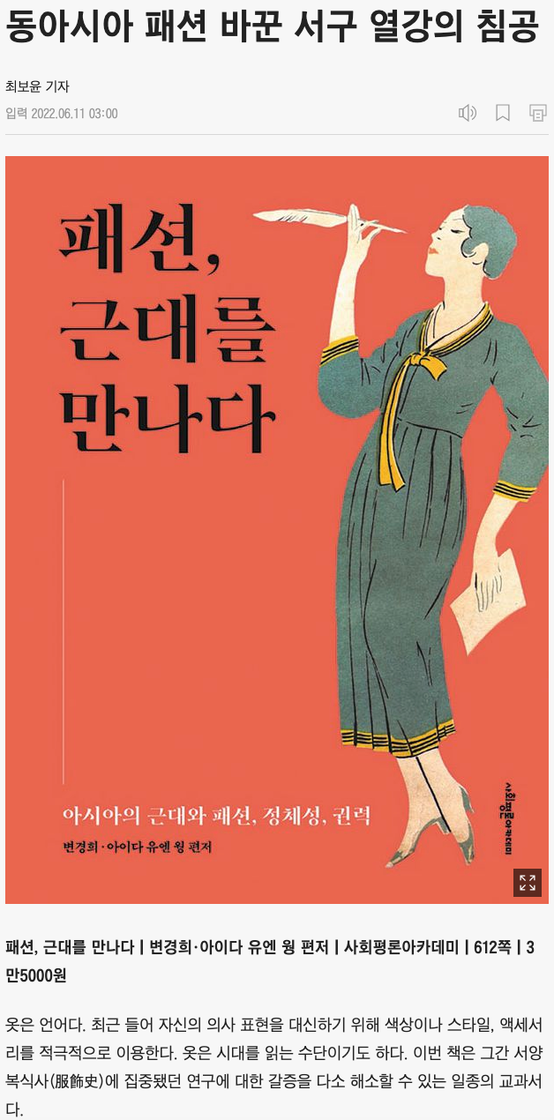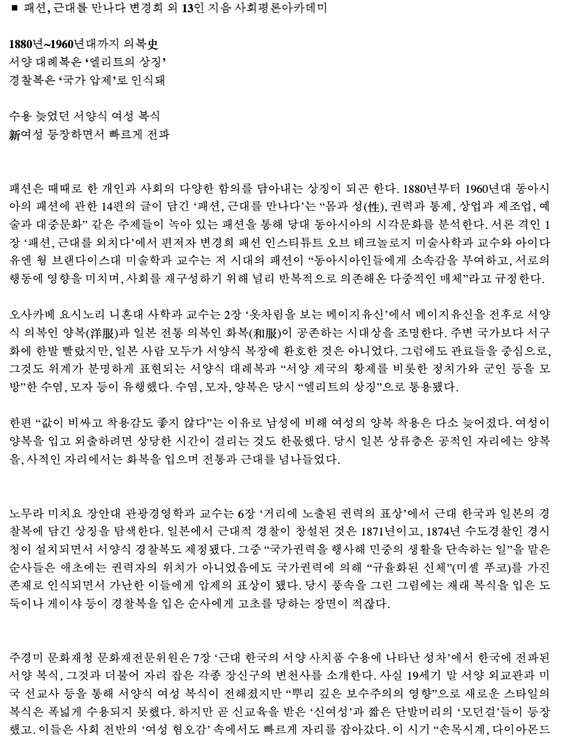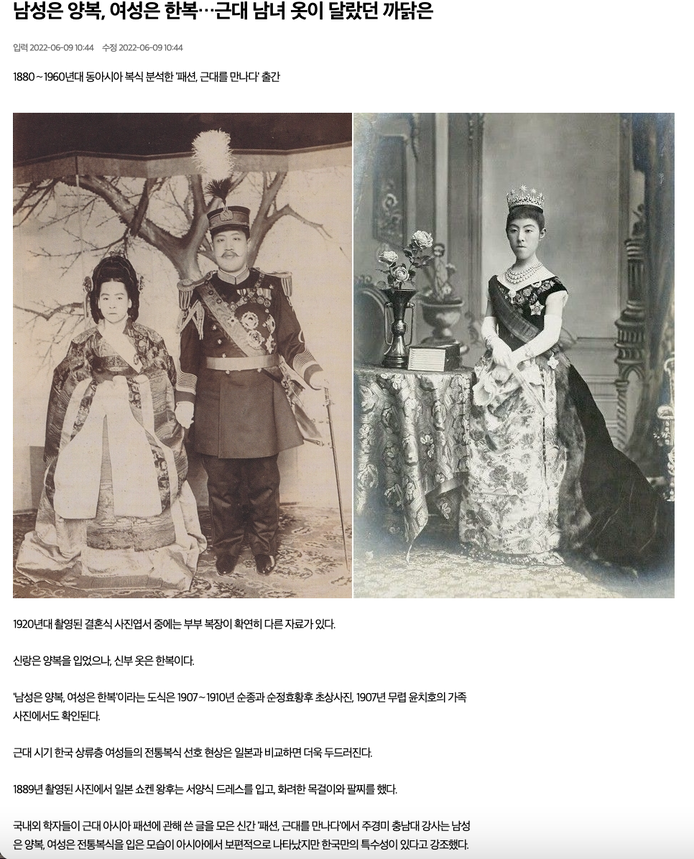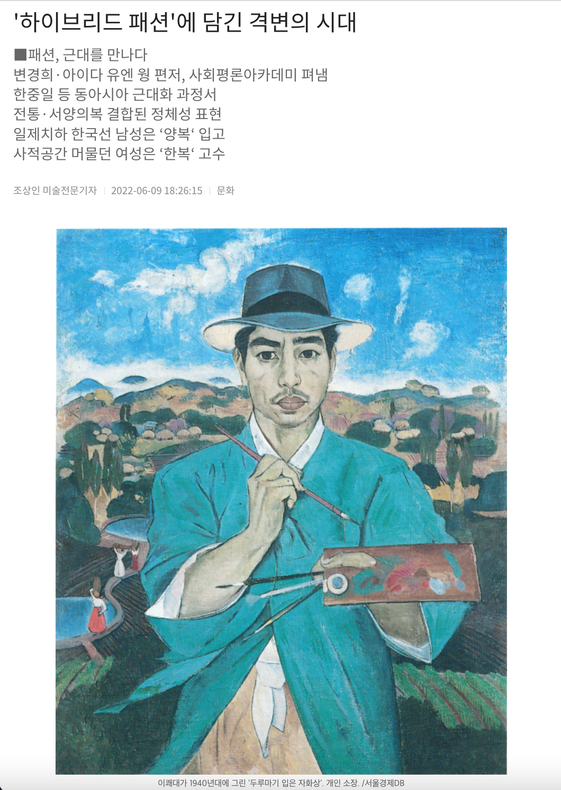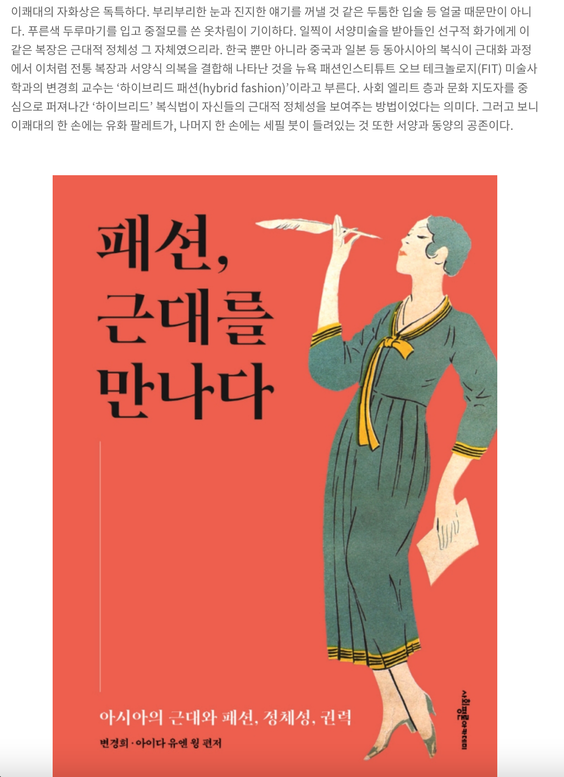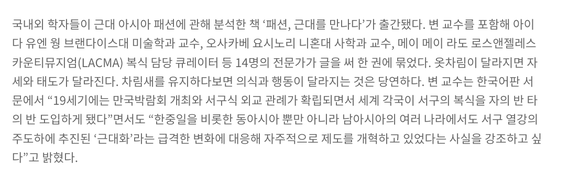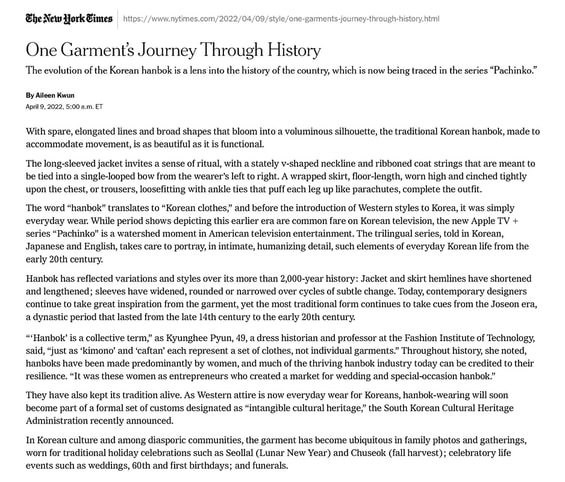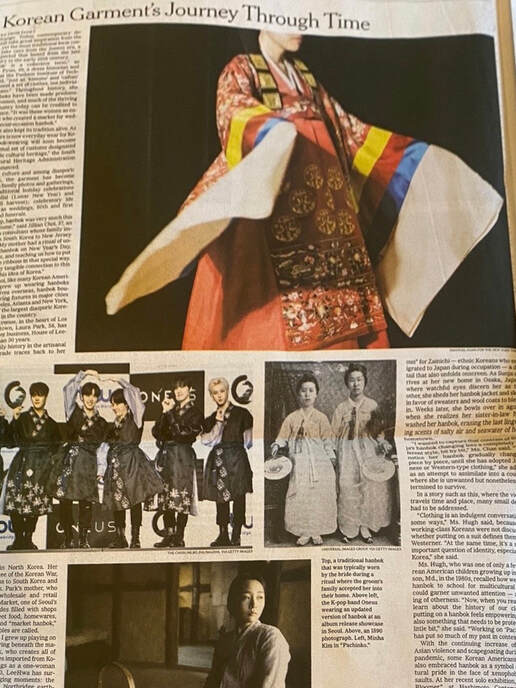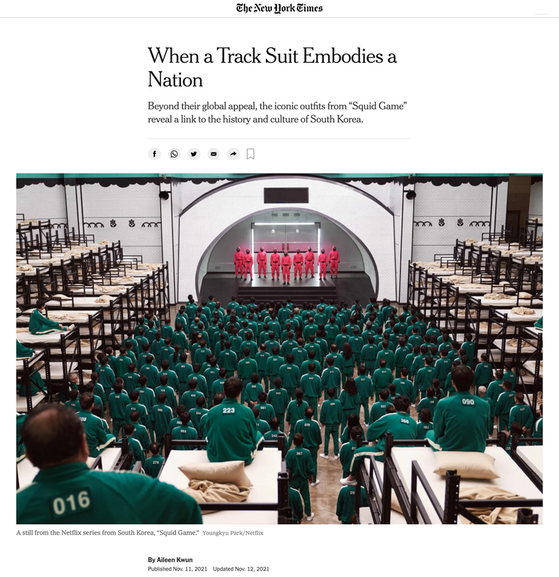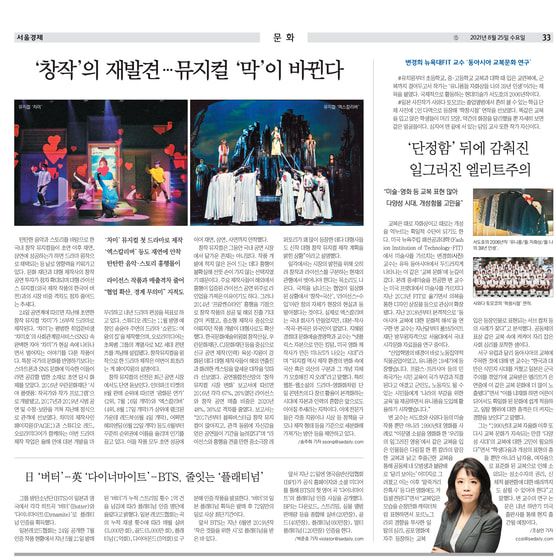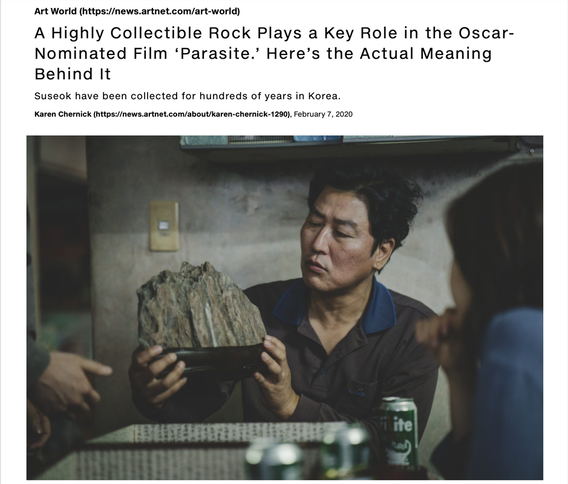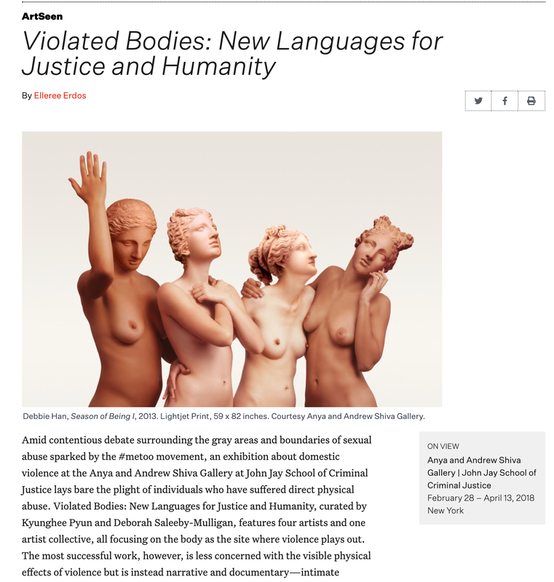Invasion of Western Powers that Changed East Asian Fashion
Chosun Ilbo, June 12, 2022
East Asian Modern Fashion … Become a 'Catalog' That Reorganized Society
Munhwa, June 10, 2022
Men's Suits, Women's Hanbok... Why Are Modern Men's and Women's Clothes Different?
Hankyung, June 9, 2022
A Turbulent Era in "Hybrid Fashion"
Seoul Daily, June 9, 2022
"'"Hanbok" is a collective term,' as Kyunghee Pyun, 49, a dress historian and professor at the Fashion Institute of Technology, said, 'just as "kimono" and "caftan" each represent a set of clothes, not individual garments.' Throughout history, she noted, hanboks have been made predominantly by women, and much of the thriving hanbok industry today can be credited to their resilience. 'It was these women as entrepreneurs who created a market for wedding and special-occasion hanbok.'"
---Article by Aileen Kwun in New York Times, April 9 2022.
---Article by Aileen Kwun in New York Times, April 9 2022.
When a Track Suit Embodies a Nation
"Ms. Pyun noted: 'While school uniforms are symbols of disciplined behavior and civic standards,' low-end track suits — especially when taken out of the gym class context — are a common trope of Korean films, shows and novels, 'usually associated with people who have failed to be accepted by a community.'"
---Article by Aileen Kwun in New York Times, November 11 2021.
---Article by Aileen Kwun in New York Times, November 11 2021.
School Uniform Is a Distorted Elitism Hidden Behind 'Nice'
A Highly Collectible Rock Plays a Key Role in the Oscar-Nominated Film ‘Parasite.’
Here’s the Actual Meaning Behind It
"Connoisseurs who collect suseok—either by going out into nature and finding them, or buying them through a dealer—know to look for certain qualities. 'Collectible rocks should be hard in density,' explains Kyunghee Pyun, an art history professor at New York’s Fashion Institute of Technology specializing in the history of collecting. Those in the know 'don’t collect loose, granuled rock, or get a rock that might break.'"
---Article by Karen Chernick in Art Net, February 7 2020.
---Article by Karen Chernick in Art Net, February 7 2020.
Violated Bodies: New Languages or Justice and Humanity. A special exhibition held at the Anya and Andrew Shiva Gallery, John Jay College of Criminal Justice, City University of New York (February 28 to April 13, 2018), 5–8.
---Exhibition review by Elleree Erdos in Brooklyn Rail, April 2018.
---Exhibition review by Elleree Erdos in Brooklyn Rail, April 2018.

